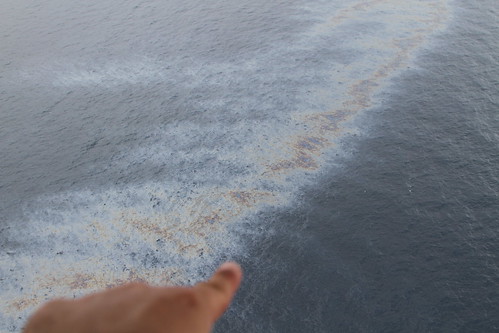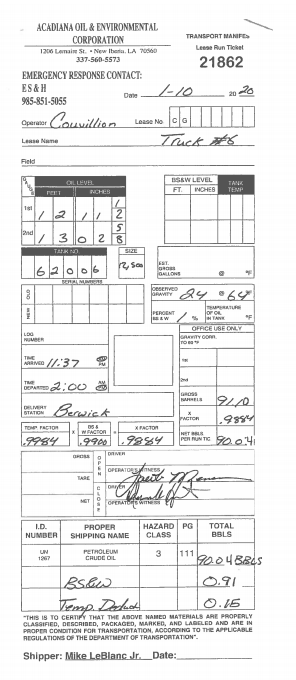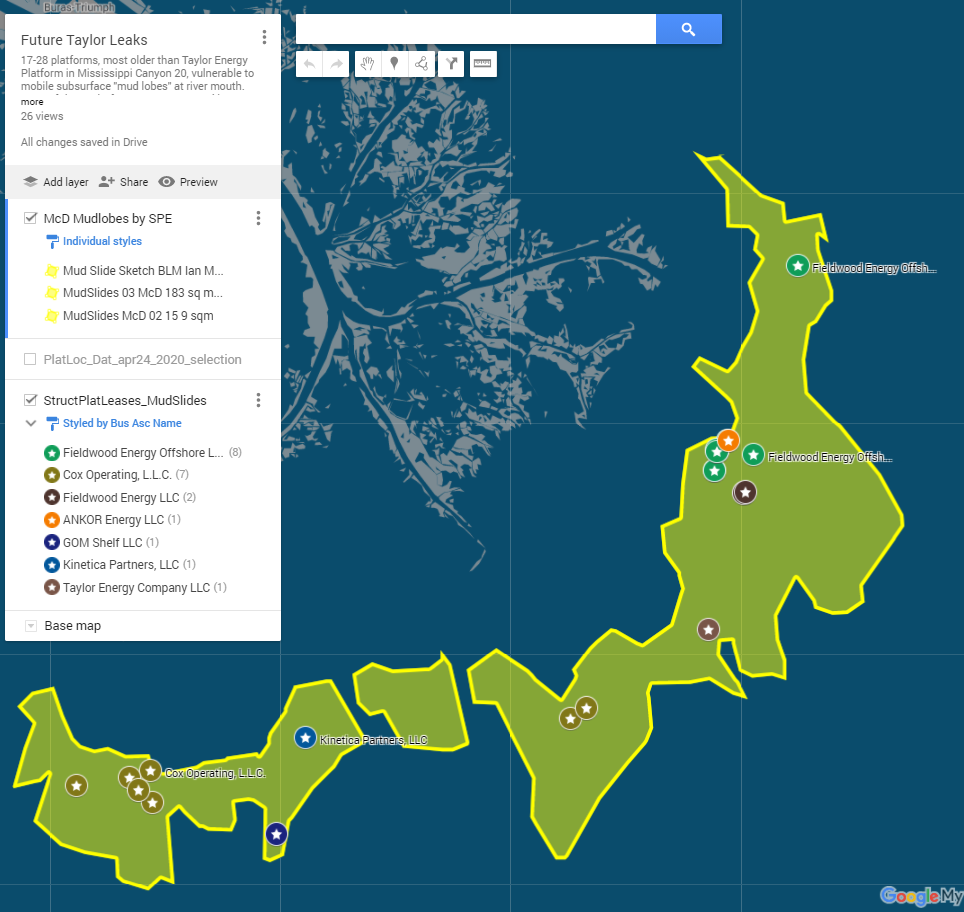For over 16 years, Taylor Energy has leaked crude oil into Mississippi Canyon Block 20, threatening sargassum, dolphins, and sea turtles with a surface sheen which had extended tens of miles daily.
Before Skytruth and other organizations like HealthyGulf, Southwings, LEAN, Louisiana Bucket Brigade, and Waterkeepers in the Gulf Monitoring Consortium stepped up their review of the slick, Taylor Energy was fine with defying the request from MMS to report the extent of their surface oiling. Just as with the BP disaster, independent remote sensing analysis sounded the alarm, that the Taylor was woefully underreporting their sheen, sometimes claiming 3 tablespoons or 1.8 gallons spilled for a slick over seven miles long. Often, no volumes were estimated at all, even as the oil spread over the horizon.

In 2014, Taylor conducted a cost benefit analysis with their faulty data, claiming a worst case scenario of 3 barrels per day (126 gallons), although many of their own reports at the time underreported the slick at over 200 gallons in a day (Dec 09, Dec 17 2014).
Last year, multiple independent government and scientific sources put the estimate above 1,000 gallons per day. ( NOAA technical memorandum NOS NCCOS )
Couvilion is selling the oil to Acadiana, and including their receipts. [slides]. Taylor is still insisting that 100 gallons per day is an increase over the normal rate, and Couvilion is capturing and selling over 900 gal / day. I assume Taylor’s next step is to accuse Couvilion of bringing in oil from somewhere else to sell?

What the receipts show is that independent science is right, Taylor no longer has any excuse to sue to stop the clean up, and they’ve been underplaying this all along.
The other shoes that haven’t dropped: One, the uncapped wells are a large, ongoing source of methane, one of the most egregious greenhouse gases.
Two, 17 other local platforms in the 1988 “mudlobe” area–also vulnerable to mudslides, are even older than Taylors. Most of these platforms are owned by a bankrupt company, Fieldwood Energy.
History has shown that the sooner the government is open and honest, the faster and safer we can fix a problem. Taking Taylor’s word for it has cost us time, jobs, and dolphins. Taking industry’s word that we are under no threat of mudslides will not serve us or the Gulf.

There’s no better time than now, when so many are laid off, and there are so many resources available, to put a brain trust together and cement these wells. There’s no better time to re-assess and re-tool these older Gulf platforms vulnerable to mudslides. Let’s get to work!
Scott Eustis is Healthy Gulf’s Community Science Director
